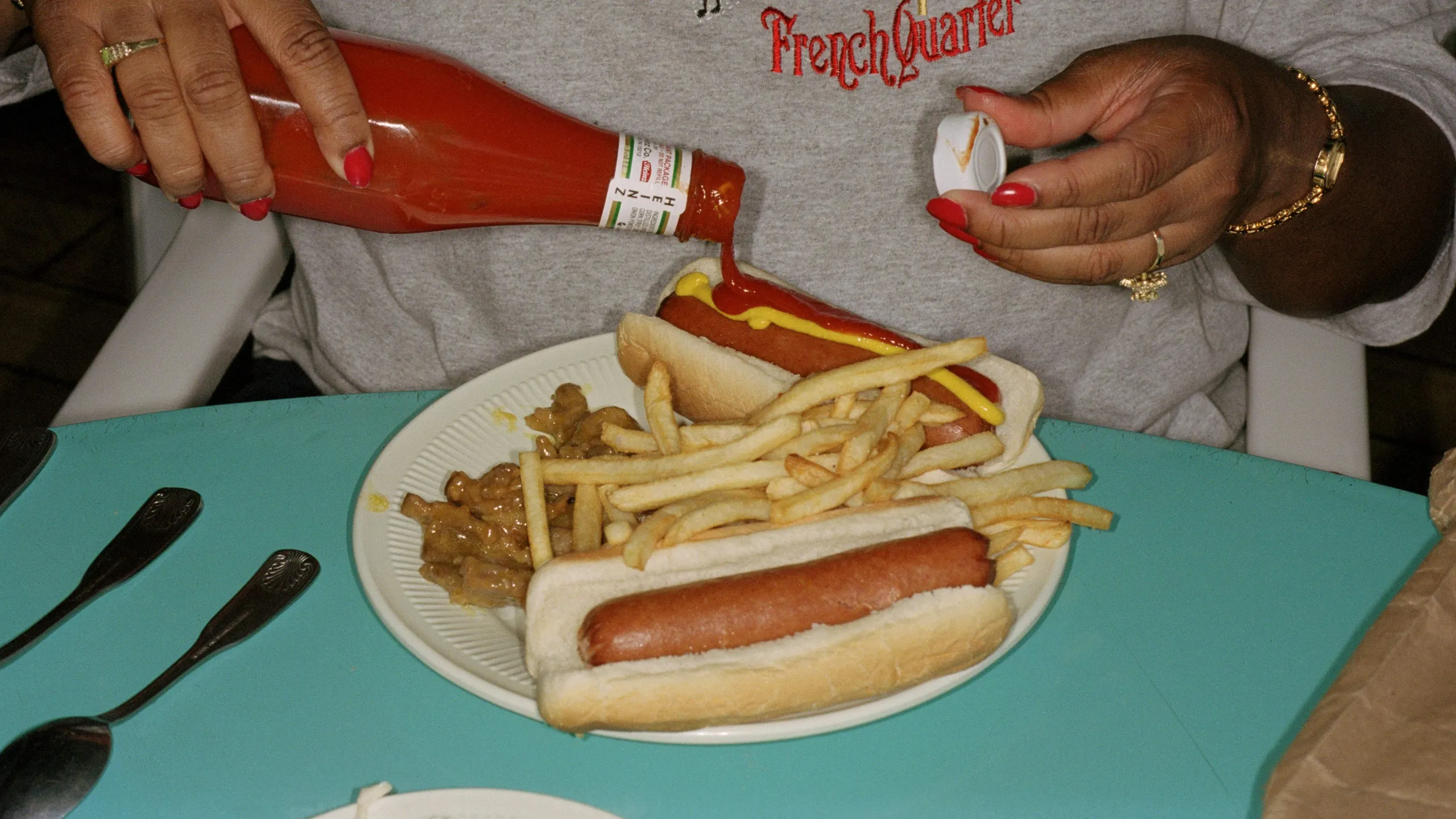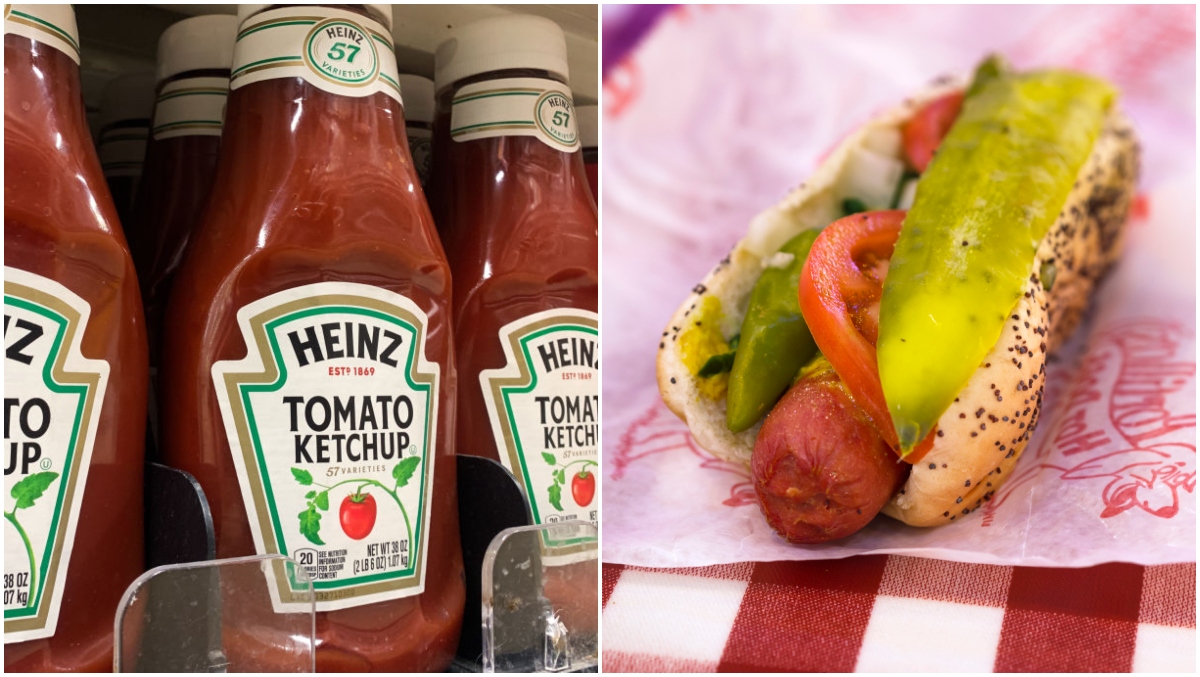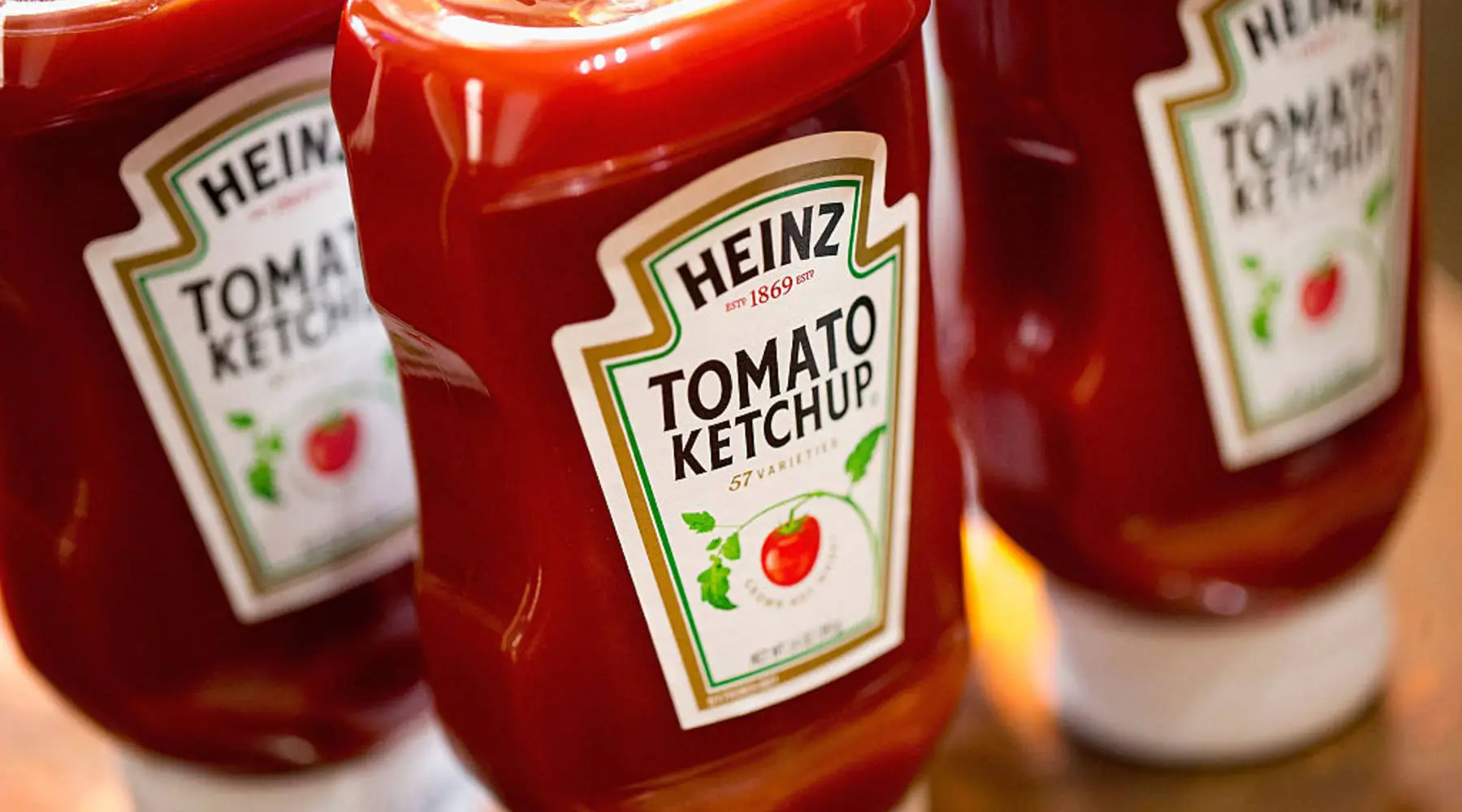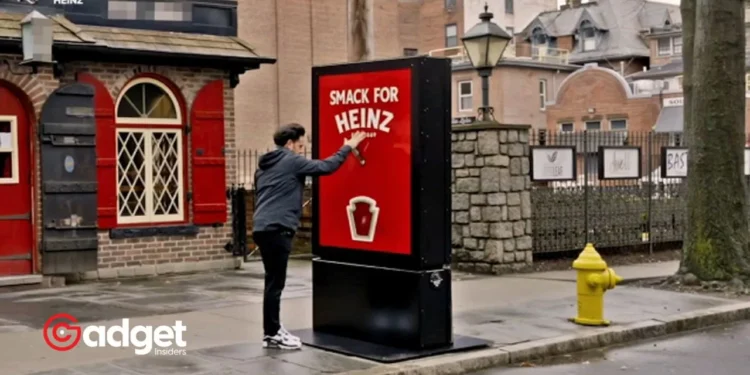It’s an eye-catching scene on Chicago’s Navy Pier: a towering ketchup dispenser, reminiscent of a monolith from a classic sci-fi movie, but with a distinctly culinary twist. This isn’t just a playful installation; it’s a bold statement from Heinz in the heart of a city known for its strict culinary traditions concerning hot dogs. Here, the age-old debate simmers: to ketchup, or not to ketchup?
Heinz, a giant in the condiment world, is no stranger to controversy, but its latest endeavor might just be its most daring.
The company has installed this larger-than-life dispenser as a cheeky challenge to Chicago’s well-documented disdain for ketchup on hot dogs, a topic so divisive it might as well be a local sport.

Heinz: Cultural Clash Over Condiments
In Chicago, hot dog purists adhere to a strict set of toppings: mustard, neon-green relish, onions, tomatoes, a pickle spear, sport peppers, celery salt, and a poppy seed bun. Ketchup?
Not on this list. This culinary doctrine is so ingrained that even President Barack Obama and local dignitaries have weighed in, aligning against the red sauce past childhood.
Heinz’s response? A campaign that seems almost like a playful prod to local tradition. “Now serving Heinz wherever Heinz isn’t served,” declares their campaign, spotlighting the freedom of choice in toppings amid a backdrop of ketchup resistance. This isn’t just about flavor—it’s a statement on culinary diversity and personal preference.

The Heart of the Matter: Local Reactions
Not everyone is amused or swayed by the giant dispenser. Mari Zavala, a South Side native and a former worker at a local sandwich icon, embodies the local sentiment when she encounters the dispenser.
“When you’re adding ketchup, you’re a weirdo,” she comments, highlighting the deep-seated cultural identity tied to Chicago’s hot dog etiquette.
Yet, there are voices of dissent, even among locals. Tourists, like Jaelyn Baisch and Miriah Forness from North Dakota, find the ketchup dispenser a delightful surprise, reminiscent of more lenient ketchup norms back home. This dichotomy showcases a city at a culinary crossroads, influenced by both staunch tradition and evolving tastes.
Chicagoans traditionally eschew ketchup on hot dogs. Heinz hopes to challenge the ketchup condemnation and bring more ketchup love to the Windy City. https://t.co/XXEGteMIjG
— USA TODAY (@USATODAY) April 13, 2024
Economic and Social Implications
Heinz claims that Chicago’s ketchup consumption is about 20% below the national average, a statistic that speaks volumes about local taste preferences but also potential market influences.
The company’s strategy includes not just whimsical installations but also an economic angle—attempting to tap into a market segment that, while currently small, could be significant.
Moreover, this initiative by Heinz serves as a reminder of the broader cultural clashes and conversations sparked by globalization and the movement of goods and culinary ideas. What happens in Chicago could be a microcosm of larger shifts in consumer behavior and cultural acceptance.

More Than Just Condiments
As the trial period for the ketchup dispenser draws to a close, the debate it has stirred up is unlikely to dissipate as quickly. Heinz has cleverly used this campaign to highlight broader themes of tradition, innovation, and choice.
Whether or not Chicagoans change their stance on ketchup, the conversation about what makes a “proper” hot dog continues to evolve, reflecting deeper cultural currents and the eternal dance of change versus tradition in the culinary world.
As this ketchup saga unfolds, it serves as a flavorful reminder of the power of food to unite, divide, and provoke thought—far beyond the simple act of eating. Whether or not Heinz’s campaign will leave a lasting taste in the mouths of Chicagoans remains to be seen, but one thing is certain: the discussion about food and identity is far from over.










